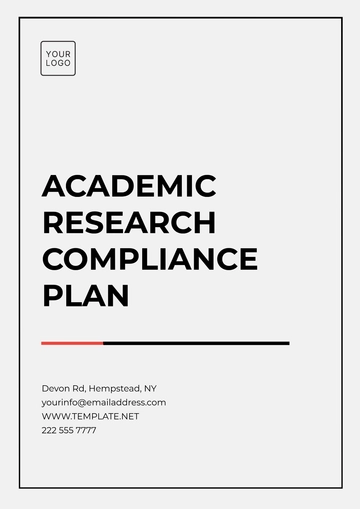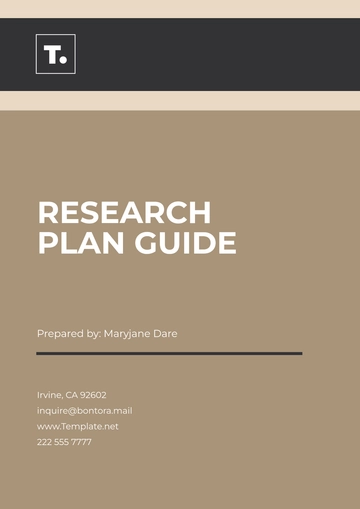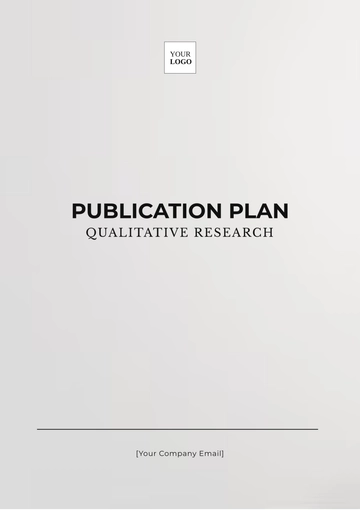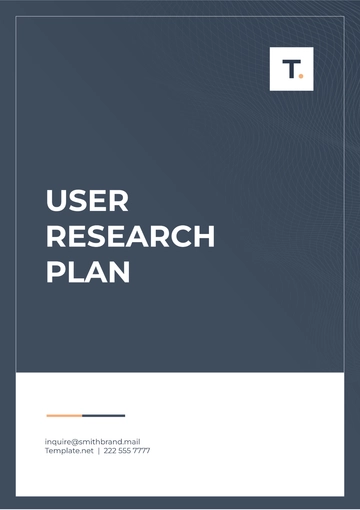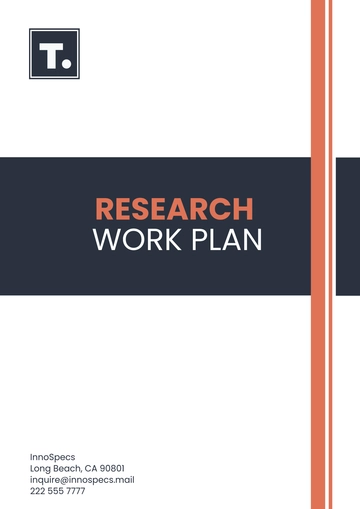Free Quantitative Research Plan

I. Introduction
A. Background and Rationale
Adequate sleep is crucial for cognitive functioning, mood regulation, and overall health. In the context of university students, who often face high academic demands and lifestyle pressures, understanding the relationship between sleep patterns and academic performance is of paramount importance. Previous research has indicated a potential correlation between sleep quality, duration, and academic outcomes, yet there remains a need to explore this relationship comprehensively within the specific context of university students.
B. Research Objectives
To investigate the correlation between sleep duration, sleep quality, and academic performance among university students from diverse academic disciplines.
To identify potential factors influencing the relationship between sleep patterns and academic performance, such as stress levels, lifestyle habits, and sleep hygiene practices.
To assess the implications of sleep interventions, including education on sleep hygiene and stress management, on academic outcomes among university students.
II. Literature Review
A. Review of Relevant Studies
Previous studies have demonstrated a complex interplay between sleep patterns and academic performance among university students. While some research suggests a positive association between adequate sleep and academic success, other studies have highlighted the role of stress, lifestyle factors, and irregular sleep schedules in compromising academic performance.
B. Identified Gaps
Despite existing literature on the topic, there are notable gaps in understanding the specific mechanisms through which sleep patterns influence academic performance among university students. Further research is needed to explore these mechanisms and inform targeted interventions.
III. Research Design
A. Research Questions
What is the nature of the relationship between sleep duration, sleep quality, and academic performance among university students, considering potential moderating and mediating factors?
How do factors such as stress levels, lifestyle habits, and sleep hygiene practices interact with sleep patterns to influence academic performance?
B. Hypotheses
There is a significant positive correlation between adequate sleep duration, high sleep quality, and academic performance among university students, controlling for relevant factors.
Stress levels moderate the relationship between sleep patterns and academic performance, with higher stress levels attenuating the positive effects of adequate sleep on academic outcomes.
Adherence to healthy sleep hygiene practices mediates the relationship between sleep patterns and academic performance, with better sleep hygiene enhancing the positive effects of adequate sleep on academic outcomes.
C. Methodology
Participants: A random sample of 500 university students will be recruited from multiple academic disciplines to ensure representation across diverse student populations.
Data Collection: Participants will complete self-reported surveys assessing sleep patterns, academic performance, stress levels, lifestyle habits, and sleep hygiene practices. Additionally, objective measures of sleep duration and quality may be obtained using wearable devices.
Data Analysis: Regression analysis will be conducted to examine correlations between sleep patterns and academic performance, with moderation and mediation analyses to explore the roles of stress levels and sleep hygiene practices.
IV. Timeline
Task | Start Date | End Date |
|---|---|---|
Data Collection | February 1, 2050 | April 30, 2050 |
Data Analysis | May 1, 2050 | June 30, 2050 |
Report Writing | July 1, 2050 | August 31, 2050 |
V. Ethical Considerations
Informed Consent: Participants will be provided with detailed information about the study and its potential risks and benefits, and their consent will be obtained before participation.
Confidentiality: Measures will be taken to ensure the confidentiality of participant data, including anonymization and secure storage.
Institutional Review: Approval will be sought from the university's ethics committee to ensure compliance with ethical guidelines for research involving human subjects.
VI. Budget
Item | Amount |
|---|---|
Participant Incentives | $2,000 |
Survey Software Subscription | $1,500 |
Wearable Devices (if applicable) | $3,500 |
Data Analysis Software | $1,000 |
Miscellaneous | $2,000 |
Total Budget | $10,000 |
VII. Expected Outcomes
Anticipated findings include a nuanced understanding of the relationship between sleep patterns and academic performance among university students, with insights into the moderating and mediating factors involved. These findings will have implications for the development of targeted interventions to support student well-being and academic success.
VIII. Dissemination Plan
Research findings will be disseminated through various channels, including academic publications in peer-reviewed journals, presentations at conferences, workshops for university stakeholders, and outreach to student support services. Additionally, findings may be shared with relevant policy-makers to inform initiatives aimed at promoting student health and academic achievement.
IX. Conclusion
The proposed research seeks to contribute to the existing body of knowledge on sleep patterns and academic performance among university students by conducting a comprehensive investigation into the underlying mechanisms and potential interventions. By addressing the identified gaps in the literature, this research aims to inform evidence-based strategies for supporting student well-being and academic success.
- 100% Customizable, free editor
- Access 1 Million+ Templates, photo’s & graphics
- Download or share as a template
- Click and replace photos, graphics, text, backgrounds
- Resize, crop, AI write & more
- Access advanced editor
Enhance your research efficiency with Template.net's Quantitative Research Plan Template. This highly customizable and editable template is designed for seamless integration into your projects. Benefit from our AI Editor Tool for precision adjustments, ensuring a professional and comprehensive research plan every time. Perfect for researchers aiming for accurate, data-driven results.
You may also like
- Finance Plan
- Construction Plan
- Sales Plan
- Development Plan
- Career Plan
- Budget Plan
- HR Plan
- Education Plan
- Transition Plan
- Work Plan
- Training Plan
- Communication Plan
- Operation Plan
- Health And Safety Plan
- Strategy Plan
- Professional Development Plan
- Advertising Plan
- Risk Management Plan
- Restaurant Plan
- School Plan
- Nursing Home Patient Care Plan
- Nursing Care Plan
- Plan Event
- Startup Plan
- Social Media Plan
- Staffing Plan
- Annual Plan
- Content Plan
- Payment Plan
- Implementation Plan
- Hotel Plan
- Workout Plan
- Accounting Plan
- Campaign Plan
- Essay Plan
- 30 60 90 Day Plan
- Research Plan
- Recruitment Plan
- 90 Day Plan
- Quarterly Plan
- Emergency Plan
- 5 Year Plan
- Gym Plan
- Personal Plan
- IT and Software Plan
- Treatment Plan
- Real Estate Plan
- Law Firm Plan
- Healthcare Plan
- Improvement Plan
- Media Plan
- 5 Year Business Plan
- Learning Plan
- Marketing Campaign Plan
- Travel Agency Plan
- Cleaning Services Plan
- Interior Design Plan
- Performance Plan
- PR Plan
- Birth Plan
- Life Plan
- SEO Plan
- Disaster Recovery Plan
- Continuity Plan
- Launch Plan
- Legal Plan
- Behavior Plan
- Performance Improvement Plan
- Salon Plan
- Security Plan
- Security Management Plan
- Employee Development Plan
- Quality Plan
- Service Improvement Plan
- Growth Plan
- Incident Response Plan
- Basketball Plan
- Emergency Action Plan
- Product Launch Plan
- Spa Plan
- Employee Training Plan
- Data Analysis Plan
- Employee Action Plan
- Territory Plan
- Audit Plan
- Classroom Plan
- Activity Plan
- Parenting Plan
- Care Plan
- Project Execution Plan
- Exercise Plan
- Internship Plan
- Software Development Plan
- Continuous Improvement Plan
- Leave Plan
- 90 Day Sales Plan
- Advertising Agency Plan
- Employee Transition Plan
- Smart Action Plan
- Workplace Safety Plan
- Behavior Change Plan
- Contingency Plan
- Continuity of Operations Plan
- Health Plan
- Quality Control Plan
- Self Plan
- Sports Development Plan
- Change Management Plan
- Ecommerce Plan
- Personal Financial Plan
- Process Improvement Plan
- 30-60-90 Day Sales Plan
- Crisis Management Plan
- Engagement Plan
- Execution Plan
- Pandemic Plan
- Quality Assurance Plan
- Service Continuity Plan
- Agile Project Plan
- Fundraising Plan
- Job Transition Plan
- Asset Maintenance Plan
- Maintenance Plan
- Software Test Plan
- Staff Training and Development Plan
- 3 Year Plan
- Brand Activation Plan
- Release Plan
- Resource Plan
- Risk Mitigation Plan
- Teacher Plan
- 30 60 90 Day Plan for New Manager
- Food Safety Plan
- Food Truck Plan
- Hiring Plan
- Quality Management Plan
- Wellness Plan
- Behavior Intervention Plan
- Bonus Plan
- Investment Plan
- Maternity Leave Plan
- Pandemic Response Plan
- Succession Planning
- Coaching Plan
- Configuration Management Plan
- Remote Work Plan
- Self Care Plan
- Teaching Plan
- 100-Day Plan
- HACCP Plan
- Student Plan
- Sustainability Plan
- 30 60 90 Day Plan for Interview
- Access Plan
- Site Specific Safety Plan
